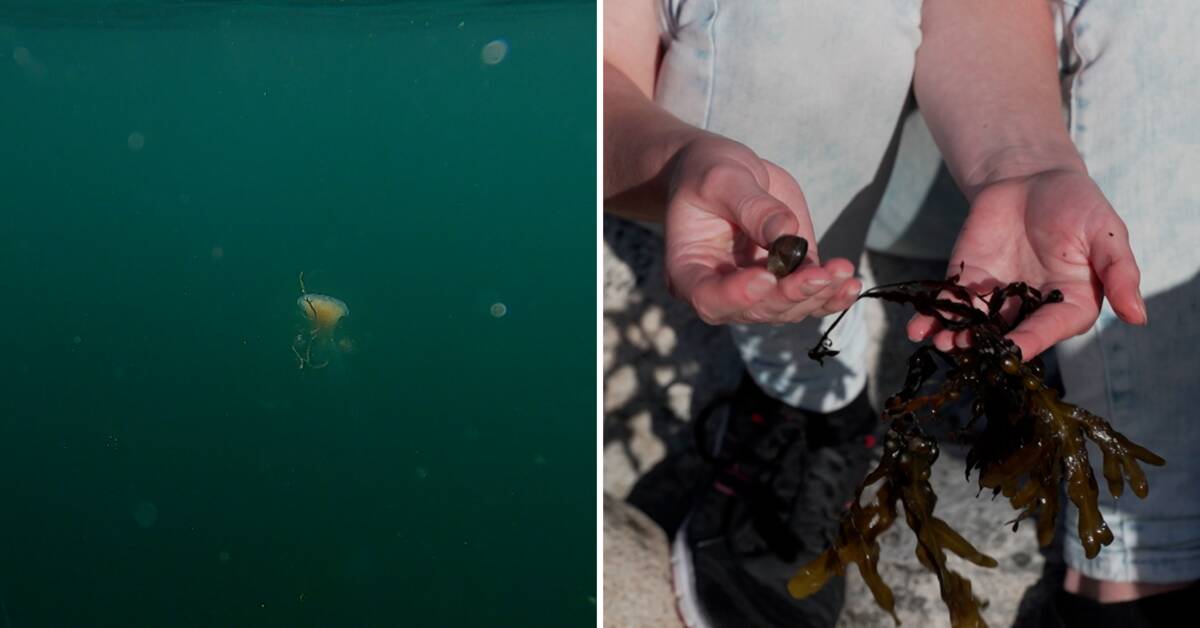At the Tjärnö Marina laboratory in northern Bohuslän, the temperature in the water has been measured for almost 40 years.
On a fine summer day, SVT follows us out in the boat, and the results we see are remarkable.
Because when the researchers have now started compiling the data, they have seen that between 1981 and 2013 the number of heat waves in the sea off Bohuslän increased by 60 percent.
- It was a shock that they have become so frequent now, I did not expect the result to be so clear, says Jonathan Havenhand, marine ecologist at the University of Gothenburg.
Stressful for many species
According to the researchers' definition, a marine heat wave means that it is approximately five degrees warmer than the average for the season, five days in a row.
On a normal summer day, the water temperature will be approximately 27 degrees.
For many species, it becomes very stressful to cope with such heat.
- Crabs, starfish, barnacles and most fish they just have to stand, they can't sweat.
Their metabolism goes faster and faster, if it gets too hot, they die, says Jonathan Havenhand.
In addition to the fact that marine heat waves are becoming more and more common, the warming of the seas in the Nordic region is also four times faster than that of the world's oceans on average.
This means that if we continue to release carbon dioxide at the current rate, our Swedish seas could be four degrees warmer in 100 years.
Important blue bar threatened
But already at three degrees of warming, there are species that have major problems.
Alexandra Kinnby has researched how the common and very important bluegill copes with a three-degree increase in temperature.
- We saw that the majority of the bluefish had great problems reproducing, in some populations the reduction in the number of successful fertilizations was as much as 40 percent.
The bluegill is both home and dining table for lots of other species and if it decreases a lot, it means that other species are being dragged along.
Species that either become homeless or starve to death.
- If the bluefish disappears, other species will also disappear, says Alexandra Kinnby, holding up a red-green bluefish ruska.

